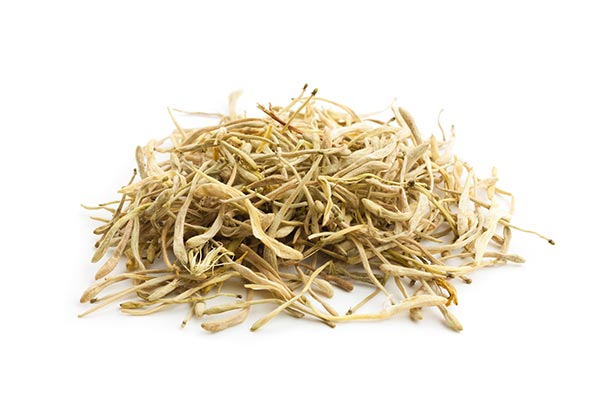A natural compound in Japanese honeysuckle may help with gastrointestinal problems
10/28/2019 / By Melissa Smith

Gastritis and peptic ulcer are gastrointestinal problems that often cause pain and discomfort. A study published in the Journal of Medicinal Food suggests using a compound in Japanese honeysuckle (Lonicera japonica) to help with these conditions.
For the study, a team of researchers from South Korea looked at the effects of BST-104, a water extract of Japanese honeysuckle, on gastritis and peptic ulcer. To do so, they induced gastritis and gastric ulcer in rats. They then treated each animal model with either BST-104, chlorogenic acid, rebamipide (positive control), or a placebo. Afterward, they measured the animals’ gastric lesion sizes, gastric mucus statuses, proinflammatory cytokine levels, and oxidative stress.
In the acetic acid-induced ulcer model, oral administration of BST-104 at 50, 100, or 200?mg/kg significantly reduced gastric lesions by 38 percent, 43 percent, and 55 percent, respectively, compared with placebo controls. Treatment with BST-104 also significantly increased gastric mucous contents, which was accompanied by higher levels of hexosamine, sialic acid, and prostaglandin E2 in gastric mucus.
In addition, BST-104 treatment increased antioxidant activities, as levels of catalase, superoxide dismutase (SOD), and oxidized/reduced glutathione ratio, and lower malondialdehyde increased. BST-104 also greatly reduced the expression of various pro-inflammatory genes.
Based on these findings, BST-104 and its active component, chlorogenic acid, exhibited protective effects against gastritis and peptic ulcers. The research team said that Japanese honeysuckle’s gastroprotective effects might be attributed to its antioxidant and anti-inflammatory properties.
Get all your favorite Health Ranger Store featured partner products at up to 51% OFF during our Black Friday and Cyber Monday Featured Partners Sales Event, while supplies last. Our limited-time event begins TONIGHT, Nov. 28 at 10 pm CST through Nov. 29 at midnight. See a preview of all the great deals at this link.
More on Japanese honeysuckle and its other health benefits
Japanese honeysuckle is a vine native to East Asian countries, including China, Korea, and Japan. This herb, as well as its derivatives like honeysuckle tea and honeysuckle oil, are used in traditional Chinese medicine for treating various ailments. Here are some of the health benefits Japanese honeysuckle offers.
- Headache relief – Japanese honeysuckle has anti-inflammatory and pain-relieving properties that are helpful in the treatment of severe headaches. To use this herb for easing headaches, boil one or two cups of water with two teaspoons of dried honeysuckle flowers or leaves for 10 minutes.
- Reducing flu and common cold symptoms – Drinking honeysuckle tea can also be used to relieve the symptoms of flu and the common cold. You can add some honey to your honeysuckle tea to relieve a sore throat. Honeysuckle may also help lower your body temperature when you have a high body temperature due to the flu.
- Nausea relief – Honeysuckle tea can help curb down irritating nausea and vomiting sensations.
- Skincare – Honeysuckle can be used to treat skin rashes, cuts, and abrasions on the skin. The stems of the plant are often used in the treatment of skin problems. Honeysuckle flowers can also be used to prevent early aging symptoms, such as wrinkles and fine lines. The anti-inflammatory and antiseptic properties of honeysuckle can also be used to treat sunburns and minor burns on the skin and remove blemishes.
- Preventing insomnia – Consuming the extract can be beneficial to people with insomnia symptoms. It’s best to consume it before going to bed for better sleep.
Aside from medicinal uses, honeysuckle is also used for cooking. Its flowers are used as a vegetable or made into syrup and puddings. They can also be added to fruit salads and blended into drinks. Its buds and leaves are made into herbal teas. (Related: Honeysuckle: A sweet-scented remedy that calms inflammation, infection and contagious illness.)
Read more articles about other herbal medicines like the Japanese honeysuckle at Herbs.news.
Sources include:
Tagged Under: alternative medicine, anti-inflammatory, antioxidant, BST-104, disease treatments, gastritis, gastrointestinal health, herbal medicine, Japanese honeysuckle, natural medicine, peptic ulcer, phytonutrients, remedies, research




















